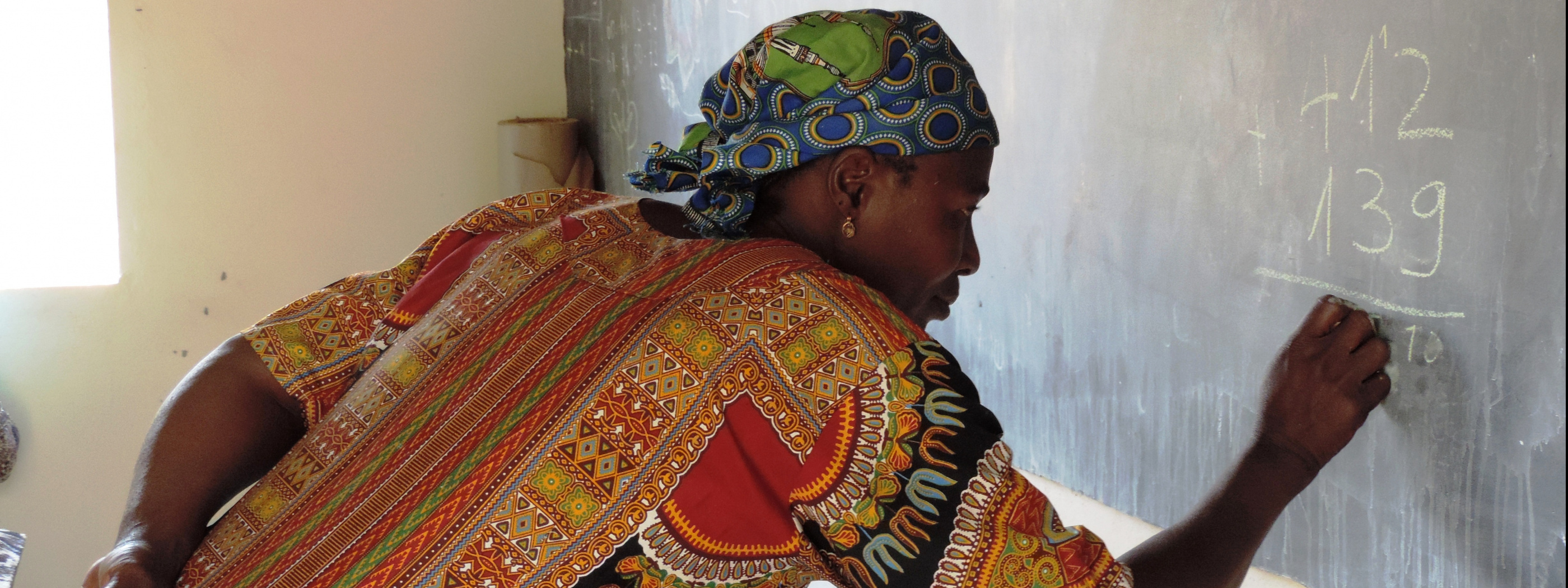Context
According to UNESCO1, the adult literacy rate in Burkina Faso is 34.6%. Most of the country's population cannot read or write. This rate presents enormous disparities according to the area of residence (urban or rural) and especially according to sex (man or woman). Literacy levels are higher for men than for women, regardless of where they live. Regarding women, only 26.2% of them are literate, hence it represents 1 out of 5 women. Literacy is a major element of personal development and, by extension, of the emancipation of women who represent more than 51% of the total population. A literate woman participates better to her own development but also to the development of her family and her community. Supporting actions aimed at reducing the illiteracy rate of women would not only contribute to their autonomy but also participate in local development.
Supported project
In 2019-2020, the L'OCCITANE Foundation supported a women's literacy project organised by Aide et Action International. This project contributed to building, renovating and leading literacy centres. These women were able to learn, to read and to write following the REFLECT method. This an approach to learning and social change which is based upon discussions about topics which are important in daily life. This project also allowed the training of teachers, skills development for local associations, as well as support and raise awareness for local women's literacy and empowerment in Burkina Faso. In addition, the Foundation supported the development of collective income-generating activities which allow literacy centres to operate independently in the long term.
An external evaluation carried out in July 2020 on the partnership with Aide et Action showed that our collaboration has contributed to improving the literacy rate of women within the associations supported. Indeed, there is now a literacy rate of more than 40% in these associations against a national literacy rate of 35% in 2020. Moreover, this same evaluation highlights the impact of the literacy of women on children's schooling. All school-aged children of literate women are enrolled in school, while just 1 in 3 children are enrolled for non-literate women in the same community.
Some figures
Through this project, literate women will be able to fully enjoy their rights to read, write and perform arithmetic, which serve as cornerstones for their emancipation.
Budget 35,579 euros
Result 189 women supported
History
Project supported since 2009
Literacy for rural women in Burkina Faso has been supported by the L'OCCITANE Foundation in collaboration with Aide et Action International for 10 years. These years of collaboration have made it possible to build, equip and operate in more than 30 literacy centres. More than 2.000 women are now able to read, write and, above all, keep up with the development of their income-generating activities (IGAs) thanks to this project. Today, the challenge of the literacy project is establishing a strategy so that centres can self-finance to the benefit of their communities.
Focus groups with women beneficiaries from Lan (Sissili Province).
"Literacy has helped us a lot. We can now read and write. We know how to use our phones without having to rely on someone to dial the numbers."
Focus groups with women beneficiaries in Gallo (Ziro Province)
"Literacy has enlightened us on many things including knowing how to read and write, knowing good practical techniques in management, hygiene, education of children".
DIASSO Diaharatou President of the Nununa federation
"The L'OCCITANE Foundation is an organisation that has enabled us to really improve our lives (...) thanks to the literacy project that I was a part of, I was able to improve my knowledge using my native language. That helps to strengthen my position within the community."


